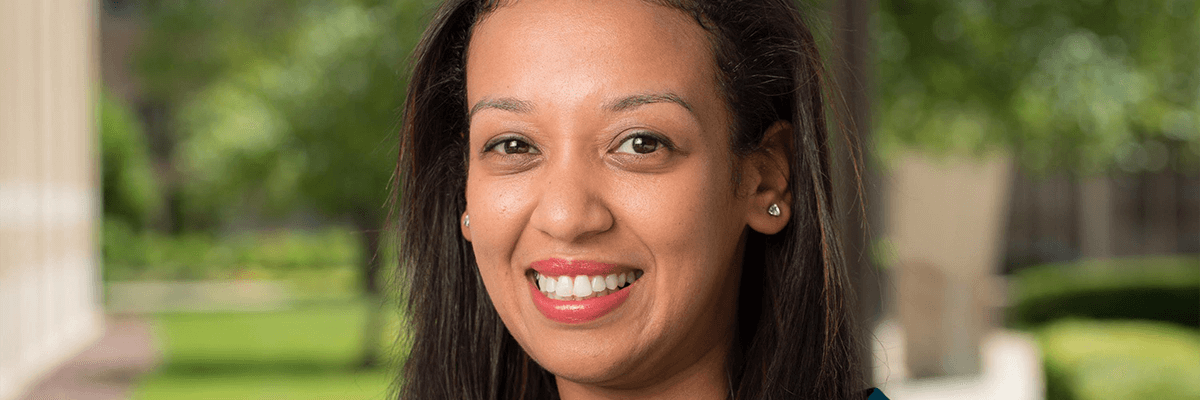
Before the summer of 2016, Dr. Rania Ibrahim, a Notre Dame Mandela Washington Fellow from Ethiopia, and Dr. Olubunmi Okanlami ’08 EMBA, then a critical care pediatrician with Memorial Hospital of South Bend, were strangers separated by an ocean. Neither one could have anticipated the high-impact professional relationship that would blossom during the six-week business and entrepreneurship-based program hosted by the Notre Dame Initiative for Global Development (NDIGD).
Dr. Ibrahim came to Notre Dame with an impressive background focused on bettering health care in her home country. “I applied to the Mandela Fellowship hoping to strengthen my skills in business development,” she explains. “I wanted to learn to expand access to medical technology and to learn ways to fully develop different possibilities of public-private partnerships.”
While at Notre Dame, Dr. Ibrahim was mentored by David Murphy, director of the Engineering, Science, Technology, and Entrepreneurship Excellence Master’s (ESTEEM) program. After learning about Ibrahim’s desire to fuse medicine with business, Murphy introduced her to Dr. Okanlami.
“I was born and raised in Nigeria before I came here as a physician,” Dr. Okanlami said. “My son, Feranmi, is an alumnus of ESTEEM, and over the years we’ve talked about our interest in giving back to the University in some way. When I heard about these young African leaders, it was a perfect opportunity to learn about the needs in their countries and how we could help.”
From the beginning, Dr. Ibrahim and Dr. Okanlami clicked over their shared interests in health care and business. Ibrahim was particularly intrigued by Dr. Okanlami’s MBA, and how it has changed her approach to medicine.
“I think my MD and MBA have been a wonderful union of the two sides that are required to provide good health care,” says Dr. Okanlami. “As a physician in business you have a different set of priorities than the business person who’s not medically trained. But the MBA helps you sympathize with the person who says: ‘I can’t pay for all of that.’ It helps you go back to the drawing board and use evidence-based information to determine which elements are going to go the furthest or impact the most people.”
When the fellowship ended at the end of the summer, the two resolved to stay in touch, not knowing that their paths would across again in just a few months.
"I applied to the Mandela Fellowship hoping to strengthen my skills in business development. I wanted to learn to expand access to medical technology and to learn ways to fully develop different possibilities of public-private partnerships."
After returning to Ethiopia, Dr. Ibrahim joined St. Paul’s Hospital Millennium Medical College in Addis Ababa, the country’s second largest hospital, which sees an average of 1,200 emergency and outpatient clients daily. Soon after, she led the launch of two new offices, the Office of Innovative Strategies and Operations and the Office of International Communication and Partnerships.
“St. Paul’s is undergoing a mass growth and transformation plan,” said Dr. Ibrahim. “We are experiencing a growing workload and have identified many gaps within our technical, operational, and communication systems.
“We determined that there needs to be structured systems in place to create a cohesive and professional environment for our work. The things I learned throughout the Mandela Washington Fellowship inspired me to push for innovation and have an unlimited field of options to find solutions.”
In December, Dr. Ibrahim arranged for Okanlami to visit St. Paul’s for a week to give lectures to and work alongside medical students, residents, and faculty doctors. Dr. Okanlami had recently retired to dedicate her time to not-for-profit work, and she was thrilled at the opportunity to begin the second act of her career with Ibrahim.
“I wanted Dr. Okanlami to visit because I recognized a need for us doctors to get more training, to think differently, and think more about processes, so we can be the innovators and change leaders in the health care field,” explains Dr. Ibrahim. “She really demonstrated her refreshing MD-MBA approach to medicine when she visited our facility. She thought about our specific situation and resource limitations in providing invaluable training and advice for the pediatric department in just a few short days.”
Dr. Ibrahim plans to continue using the lessons from her Mandela Washington Fellowship experience, as well as from her new mentor, to continue her mission of improving health care for her community.
“The whole Mandela Washington Fellowship experience was an eye opener to see what the developed world is doing right, especially in the area of systems,” Dr. Ibrahim says. “I’ve come to realize that we often focus on the limited resources, but what we lack are proper functioning systems customized to our needs. Thanks to the Mandela Washington Fellowship, I have access to new colleagues suited to help me with some of these system innovations challenges.”